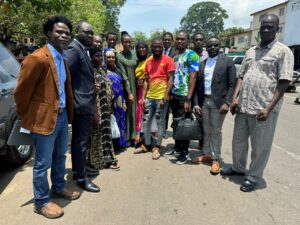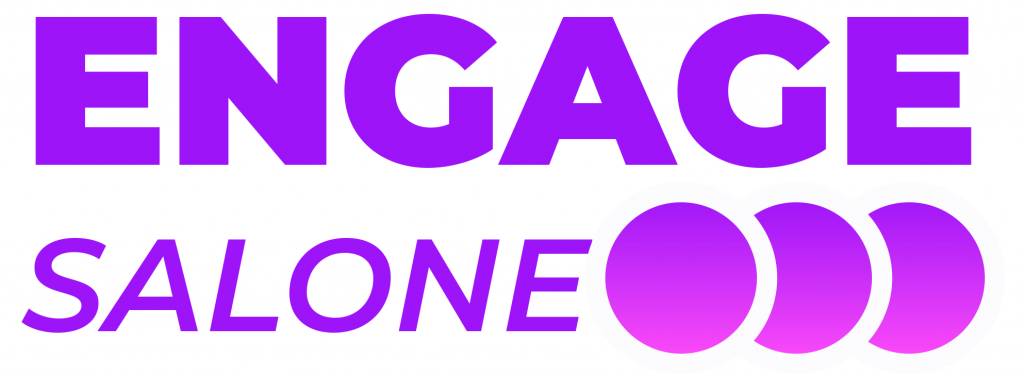This week, one of the country’s most influential women on the arts and entertainment scene, Zainab Sheriff spent two nights in police custody for scathing criticism of the President on social media. While the celebrity received a lot of support for the comments, government supporters hold a different view—she went overboard. That is not the point, however, and to focus on whether Zainab was right or wrong also misses the point. What is important to note is the state’s continued manifestation of extremely low levels of tolerance for brutally honest and unpalatable criticism from citizens. The state seems to be prepared to go after anyone who crosses their red lines, especially criticism that is directed at the Presidency. Such cases are treated like blasphemy. It is discomforting behaviour that sends a very wrong message.
Journalists, civil society, and everyone concerned with freedom of expression celebrated when President Julius Maada Bio’s government finally repealed the draconian criminal libel law that jailed so many people for more than half a century. Part Five of the Public Order Act of 1965 was considered the biggest obstacle to freedom of expression and of the press in Sierra Leone. Events such as the detention of Zainab Sheriff, the arrest of a teacher who appeared on a TV show last year, the detention and trial of opposition politician, Kemoh Sesay, the arrest and detention of another set of opposition politicians, including Femi Claudius Cole and Dennis Bright; the extreme case of the trial of a man widely believed to be facing mental health issues, “Blacker”, among others, shows that there is still a long way to go in getting the state to accept that governance and leadership in a democracy require high levels of tolerance for criticism and in some cases, magnanimity, especially when it comes to the way citizens express how they feel about their elected officials and government.
While journalists enjoy a degree of freedom—in so far as arrests and detentions are concerned—the state has become overly sensitive to comments made by ordinary people and opposition politicians. The threshold has become very low and the slightest emotional and unguarded comment can land someone at the Criminal Investigation Department (CID) where some have been held for days without charges. There seems to be no room for the kind of political banter that does not really translate to any real threat to public safety and security.

Politicians are expected to be thick skinned against criticism by international human rights standards, particularly, the African Commission on Human and Peoples’ Rights’ declaration of principles on freedom of expression and access to information in Africa. Leaders around the world are usually the subject of ridicule, caricature and in some cases plain insult. We have seen a lot of this in Sierra Leone. To be able to take it all in and move on goes a long way in determining the maturity of the leadership and the extent of the democratic space. The state may want to believe that cracking down on unpalatable criticism makes it look stronger. It does, but only on the surface. What this sort of posture does is to present the state and its leaders as weak crybabies who cannot stand a Zainab Sheriff rant or gibberish coming from Blacker. Imagine for a second, why would the state spend precious time putting Blacker on trial and make him appear in front of a whole magistrate for something that no one really understood? This shows weakness and fear, not strength. Detaining Zainab without charge is not a sign of strength either. The state keeps failing the test on freedoms.
Repealing the criminal libel laws was probably one of the biggest achievements of the Bio government but the continued arrest and detention of people who say things that the government and its supporters do not like defeats the purpose. It is meaningless to create the impression that people are free to express themselves and yet tighten things up to the point that politicians and other citizens have to think twice about expressing the way they feel about their government and leaders. We can’t just have a system where the only people who are free to speak are journalists. Even those who appear on media programmes, like the teacher who was arrested at AYV, are not spared. Apparently, others are said to have lost their jobs for simply expressing views that are not tolerated by the powers that be. This is not a good picture. It does not represent a government that prides itself in creating an environment for free media. The big picture looks like a façade that seems to only tolerate freedom of expression at the institutional level. To be precise, for journalists only. Anybody else, who does not have the backing of the media fraternity cannot hold such critical views.
The state needs to change its approach and that begins with appreciating that in a democracy, people hold different views. Some of them can be outside of the usually tamed views. Others would be unusual and revolting. At the end of the day, leaders need to rise above the banter on social media and accept that not everyone would say what they want to hear and that some people do not like them. They should live with it.


